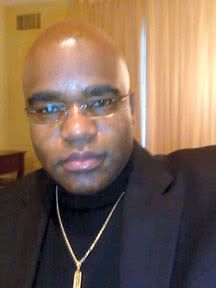The world of the military spouse has long been decidedly female. Though about half of the women serving in the Army are married, a predominantly male force means more than 93 percent of military spouses are still women. So it makes sense that military spouse paraphernalia would be pink, and one would have to look pretty hard to find an "Army Husband: Toughest Job in the Army," T-shirt for sale at the Exchange. So how do male spouses find footing - and acceptance - in a culture dominated by women?
Part has to do with the attitude of the Servicemember spouse, said Marcelle Whitehurst, who has been married to Sgt. 1st Class Loretta Whitehurst, first sergeant with the 227th Preventative Medicine Detachment, 56th Multifunctional Medical Battalion on Joint Base Lewis-McChord, for more than 20 years. "Just because (her) husband doesn't wear a uniform doesn't mean he's not significant," he said. "(She) should be proud of (her) spouse."
 The other part has to do with the spouse himself. Many male spouses are active duty, former or retired Servicemembers (like Whitehurst, who spent more than 24 years on active and Reserve duty with the Navy), and may feel comfortable with the military lifestyle. Those with no military experience - both male and female - may feel alienated and lost in a world punctuated by acronyms, rank divisions and the transient nature of military life.
The other part has to do with the spouse himself. Many male spouses are active duty, former or retired Servicemembers (like Whitehurst, who spent more than 24 years on active and Reserve duty with the Navy), and may feel comfortable with the military lifestyle. Those with no military experience - both male and female - may feel alienated and lost in a world punctuated by acronyms, rank divisions and the transient nature of military life.
For women, joining a spouses' club, a religious group like Protestant Women of the Chapel (PWOC) or stepping into a Family Readiness Group (FRG) can help them find fast friends. But as a minority, the male spouse may be hesitant to step up and join these traditionally female groups.
"It's important to develop a personal web of support made up of male friends on base who share your interests," said Robert Duncan, Military Spouse Magazine's 2011 Navy Spouse of the Year, in an interview on the website (www.milspouse.com). "They could be fellow spouses, but more likely they will be active duty Servicemembers."
Still, Whitehurst recommends that male spouses step up and become involved in the FRG - something he has done twice.
While living in Wurzburg, Germany in 2000 and looking for work (a predicament shared by many military spouses), Whitehurst volunteered as a key caller with Loretta's FRG. As an older, "seasoned" spouse, his role was as an advisor, counselor and perhaps even mentor to some of the younger spouses - both male and female. "We were a close knit family," he said.
But Whitehurst could feel animosity from many of the male Soldiers in the unit. One even came right out and told him he didn't respect him. "There were lots of looks," he said. "Soldiers have to size you up."
 He volunteered again just last year, this time as the FRG leader for the 227th PMD on JBLM. Though he was the only male spouse in the group, the other spouses accepted him, he said, and he didn't feel any of the animosity he had while in Germany. Nonetheless, he didn't truly feel like a part of the group because of the gender difference. "I could never be myself," he said.
He volunteered again just last year, this time as the FRG leader for the 227th PMD on JBLM. Though he was the only male spouse in the group, the other spouses accepted him, he said, and he didn't feel any of the animosity he had while in Germany. Nonetheless, he didn't truly feel like a part of the group because of the gender difference. "I could never be myself," he said.
Whitehurst resigned as FRG leader last month when he started work as a Family Readiness Support Assistant (FRSA) for the 212th Field Artillery Battalion, 4th Stryker Brigade, 2nd Infantry Division. One of three male FRSAs in the area, his FRG experience allows him to relate to both male and female spouses and help them find the resources they need, he said.
Though being a male in a predominantly female military spouse culture may have its obstacles, with a willingness to step up, male spouses may find acceptance - and perhaps lifelong friendships - through their unit's FRG.



Read Comments